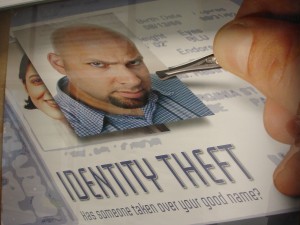A Barcelona court has found Barcelona forward Lionel Messi, and his father, Jorge Horacio Messi, guilty of three counts of tax fraud and has sentenced them to 21 months in prison.
It is unlikely that either will have to serve any jail time.
In a statement, the court also said that the sentence can be appealed through the Spanish supreme court. Under Spanish law, a tax prison sentence under two years can be served under probation, meaning Messi and his father are very unlikely to go to jail.
The court has also ordered Messi to pay a fine of about €2 million ($2.2 million), while his father was dealt a €1.5m fine for the tax evasion.
The court had been hearing a case brought by prosecutors who maintain that Messi and his father used tax havens in Belize and Uruguay as well as shell companies in the U.K. and Switzerland to avoid paying taxes totalling €4.1m on earnings from image rights from 2007 to 2009.
Barcelona on Wednesday issued a statement in support of their star forward, saying that they feel Messi is not criminally responsible for the tax fraud.
“FC Barcelona gives all its support to Leo Messi and his father with relation to the sentence for tax evasion handed out by the Provincial Court in Barcelona today,” the statement read. “The Club, in agreement with the Government prosecution service, considers that the player, who has corrected his position with the Spanish Tax Office, is in no way criminally responsible with regards to the facts underlined in this case. FC Barcelona continues to be at the disposal of Leo Messi and his family to support him in whatever action he decides to take in defence of his honesty and his legal interests.”
Lionel Messi admitted in court last month that he signed many documents without reading their contents and that he visited a notary’s office to go through with setting up a company to handle his finances without understanding what was going on.
When news of the investigation first broke in the summer of 2013, the Messi’s paid over €5m in arrears and extra charges. They are also believed to have paid €10m in taxes due on the image-rights income for 2010 and 2011.
In February, Messi’s teammate Javier Mascherano was given a one-year prison sentence for not properly paying his taxes. The sentence was deferred for two years after his legal team rejected the option to pay a new €280,000 ($312,000) fine, which it considered excessive.
According to Forbes magazine, Messi earns a total of $81.4 million a year, making him No. 2 in their list of world’s highest-paid athletes for 2016.
The truth is that no one likes to pay taxes. However, all of us and the companies we work for are obligated to do so. We all know that even just for our personal tax returns, tax laws can be quite complex. Because of how complicated tax laws can be, these cases can be some of the most complicated criminal cases any lawyer will ever handle.
There are many different types of tax fraud cases. Sometimes, prosecutors will try to claim that a person attempted to “evade” taxes. Other cases involve allegations that someone failed to file a tax return. There are also cases where the government alleges that a person did not identify the source of income, or that they allegedly structured cash deposits to avoid the filing of currency transaction reports.
 Florida Criminal Attorney Blog
Florida Criminal Attorney Blog



